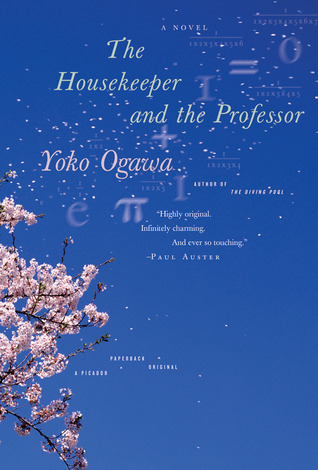What do you think?
Rate this book


180 pages, Paperback
First published August 29, 2003



220 : 1 + 2 + 4 + 5 + 10 + 11 + 20 + 22 + 44 + 55 + 110 = 284
220 = 142 + 71 + 4 + 2 + 1 : 284
"That's right! The sum of the factors of 220 is 284, and the sum of the factors of 284 is 220. They're called 'amicable numbers,' and they're extremely rare. Fermat and Descartes were only able to find one pair each. They're linked to each other by some divine scheme, and how incredible that your birthday and this number on my watch should be just such a pair."


Since Enatsu had retired long before Root was born, he’d gone to the library to find out about him. He learned that he had a career record of 206 wins, 158 losses, 193 saves, with 2,987 strikeouts. He’d hit a home run in his second at bat as a pro; he had short fingers for a pitcher. He’d struck out his great rival, Sadaharu Oh, more than any other pitcher, but he’d also surrendered the most home runs to him. In the course of their rivalry, however, he’d never hit Oh with a pitch. During the 1968 season, he set a world record with 401 strikeouts, and after the 1975 season (the year the Professor’s memory came to an end), he’d been traded to the Nankai Hawks….
He’d chosen 28. Enatsu had played his whole career with a perfect number on his back!






